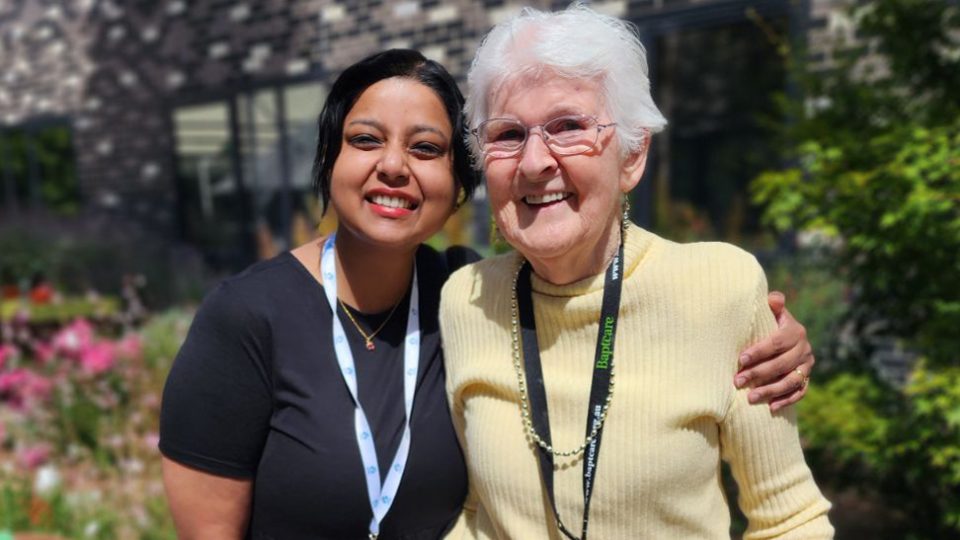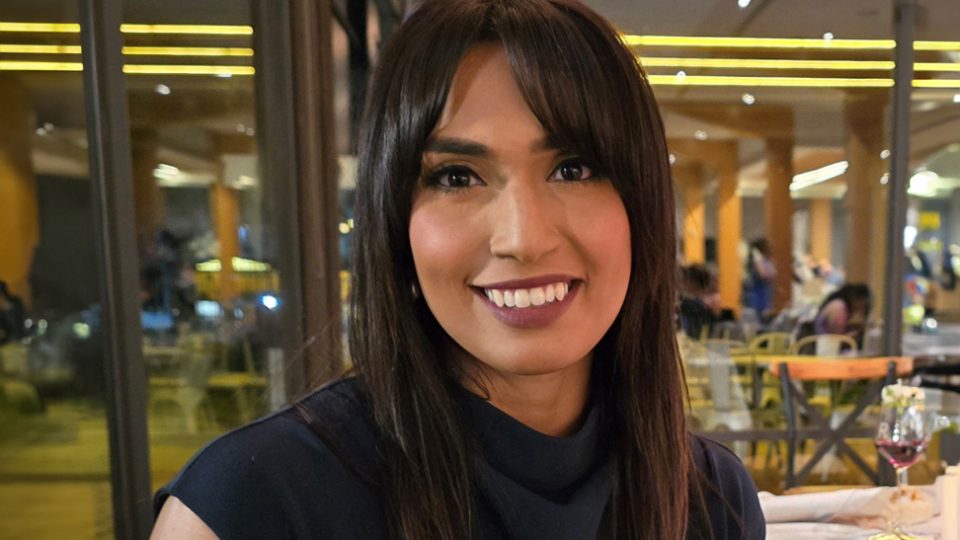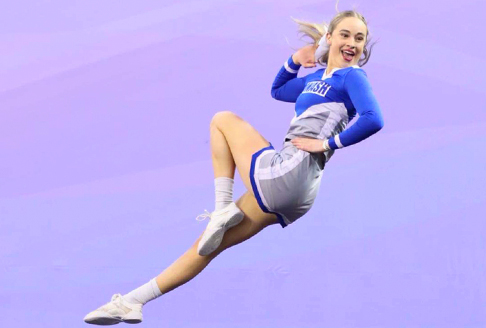What is your current role and what does it involve day to day?
I’m a Personal Care worker and have been working within the Home Care team at Baptcare for eight months now. This involves going to clients’ houses and providing them with a service they have requested. This may be shopping or escorting them to places of their choice.
I work from 9am to 5pm and have three to four clients a day which gives me good variety.
Why Home Care?
I was looking for a job to learn more skills to help with my Monash nursing studies. My cousin recommended Baptcare (she previously worked there) and thought I’d be suited as a carer because I love helping and talking to people.
I loved the idea of being a carer and gaining more experience and confidence in speaking to clients.
What do you like about working with Baptcare and the Home Care space?
I love the job so much! I enjoy working with a range of different clients with different needs on a day- to-day basis. I love working on my communication and problem-solving skills and enjoy the challenge of working out the different ways that I can best help them.
I also love working with Baptcare as it gives me a bit more insight into how people live with different health-related conditions and how they manage their conditions (which helps with my nursing studies at university).
Did you encounter any surprises in starting work in the Home Care space?
I’ve never had a job where I needed to work independently and I wasn’t expecting it! But I’ve adjusted well now and think it has given me a good opportunity to figure out my own skills. I was also pleasantly surprised with how much of an impact I was able to make on clients even by doing simple things like doing their shopping or cleaning their homes. My clients are always so grateful and appreciative of the work we do and it makes me so happy!
What about working with our clients? Is working with people in their homes what you expected?
The clients I work with are all very nice and super grateful for all the help I give them. It is so nice to leave a shift and see a smile on their face. Working with people in their homes is great because the clients are comfortable in their own environment. I feel like there is a lot of trust between us as they are letting me into their home.
Can you share a particularly special workday or customer interaction you’ve had recently?
There is always something great every day! Whenever I leave the client’s house, it’s always positive.
Did you always want to work within the caring space and what are some other jobs you’ve performed in your career?
Before I became a personal care worker, I had only done study placements. For example, I worked at a hospital as a Personal Care Worker for university giving the patients showers, feeding them and other general personal care they needed.
I’m looking forward to doing medications and to getting more involved in further nursing when I’m a qualified nurse.
What did you want to be when you grew up?
I have always wanted to be a nurse – specifically a travel nurse. When I was a kid, I had a lot of hospital visits because of scars from injuries from crazy risk-taking kids’ stuff such as breaking my arms, tree climbing and cheer accidents. I looked up to the nurses who I met in the hospitals and thought – I want to be like that one day. I loved watching them work under pressure and have always viewed nurses and other people who work in healthcare as superheroes!
Can you tell us two surprising things about yourself?
Apart from my love of cheerleading (Editor- Aisha is a Victorian state cheerleader for Monash University but more on this later!), I’ve done lots of travel, including living in Singapore for a year and can speak quite fluent mandarin.
What are your favourite countries and what’s on your travel ‘wish list’?
I love Asia so much as I have done lots of travelling around South-East Asia, but Japan and Greece are the top of my bucket list at the moment because I have never been to either of these countries.
Do you have a favourite quote or motto in life?
I like the quote ‘every lesson is a blessing’ because it is so true!
You really can learn from everything, including mistakes and challenges. If you can look at mistakes and challenges positively in some way it can help you to learn, grow and it can teach you important things in life!
How would your friends describe you?
Energetic and passionate. When I care about something I set my mind on doing it.
Do you have a mentor or idol? Or if you could sit next to someone at a dinner party, who would it be and why?
I don’t have a celebrity idol but I do look up to my family members who work in inspiring jobs. My cousin is a nurse who worked in Africa for a few years helping out in hospitals. I find this very inspiring – the fact that she helped so many people. It’s definitely something I’d like to do one day.
Favourite movie?
Stranger Things on Netflix
And now to some questions about cheerleading! How did you get into cheerleading?
I joined the Monash University Cheer team when I started doing my nursing degree at Monash a few years ago. I’m in their top all girl team and have been cheering for three years. I’ve worked my way up versing every other university and I just love it! In September we’re competing in the UniSport Nationals in Queensland which is really exciting. (Editor: The UniSport Nationals provide an opportunity for students at 43 member universities from across Australia to compete head-to-head in a number of national standard sporting competitions, including Cheer and Dance).
What’s your position in the cheer team and what drew you to cheerleading?
I’m a flyer – doing tricks and poses in the air! The way it works is that there are four girls per group with one flyer and three other girls holding the flyer in the air.
I did cheerleading in high school as a hobby. When I started cheer after school, it was because I wanted to work on my fitness and I knew that I loved the sport from doing it during high school. I also joined university cheer hoping to make new friends and travel a bit. It has been fantastic!
So, you weren’t inspired by Zac Efron and the High School Musical franchise?
Haha – no! But they are great movies!
However, the TV series Bring It On was an inspiration. I would watch that and think it looked fun to be thrown around and hope that people could catch me!
Have you ever been hurt?
No, I’m under a really good team at Monash so they never drop me. I do make the odd mistake and fall but they always catch me. I’ve never had any injuries during my university cheerleading time.
What do you like about cheerleading?
I like that cheer is a huge team activity and not just about focusing on myself.
Everyone in a cheerleading team has to be doing their job and giving 110% for cheerleading to work. Everyone needs to put trust in each other.
I also love meeting new people and new teams during cheer competitions.
What about the movie depictions of cheer as a bit cutthroat and competitive?
This hasn’t been my experience. Everyone is super nice and all my teammates are super supportive. The only thing is that coaches are pretty strict – if you make a mistake you have to do laps around the gym/extra fitness/conditioning!
Do you have a favourite chant or cheer? (Apart from the one we created for you earlier …here’s a quick refresher):
Cheer for Aisha
She can’t be beat
Bright, fun and lovely
She’ll care for you a treat!
We’re in the university division and have a Monash chant. We shout out things like:
M O N A S H Monash … let’s … go … Monash!!
It’s a compulsory part of the cheer competition that teams do a 30 second chant. Whether you’re in the air or on the floor, we scream the chant at the top of our lungs!
Does your hobby of cheerleading help with your daily job as a carer?
Yes, it definitely helps with the communication side of my job.
Everything in cheer is about communicating. You have to be direct and honest about things – and a bit vulnerable.
For example, say a stunt goes wrong – I have to express clearly why it has happened and need to be direct and honest with explaining why the mistake happened.
Teamwork is essential and you need to be a bit assertive. You also need to make quick decisions – if you feel like something is going wrong – you need to make decisions/think of other options.
In this way, it’s a bit similar to my job at Baptcare. I need to make decisions quickly and be flexible. If a client doesn’t like something one way – you need to try other ways.
[Editor’s note: It’s no surprise that Aisha stars as a personal care worker. There is a clear correlation between characteristics for great cheerleaders and care workers: positive attitude/teamwork/dedication and physical strength – all qualities that Aisha has in spades.]
Thank-you Aisha for all that you do. Baptcare are definitely your personal cheerleaders! Best of luck in the upcoming UniSport Nationals in Queensland next month. We won’t say break a leg but we’re happy to repeat your special cheer if you’d like?
Interested in working at Baptcare with great people like Aisha? Check out our Careers page here.
Community news
-

Faces of Baptcare: Pratikshya Raut
Monday 12 May was International Nurses Day, but at Baptcare we celebrate our wonderful nursing staff every day. Great people like Pratikshya Raut, Nurse Unit Manager at our Westhaven Residential Aged Care community – and our latest Face of Baptcare.
- 28 May 2025
-

Volunteer Spotlight: Jasmine and Jean
We always look forward to National Volunteer Week (held this year from 19 – 25 May) because it is an opportunity to celebrate our stellar volunteers. Jasmine Varghese is just one of our many dedicated ‘vollies’. She is a frequent visitor to our Brookview Aged Care community to meet up with resident Jean Black. We asked Jasmine and Jean to tell us about their connection.
- 20 May 2025
-

Faces of Baptcare: Stephanie Gonsalves
I am Operations Manager, Community Services Victoria. This involves providing support to a range of different programs to support our community. That might be sharing tips and tricks to solve problems, connecting great minds to collaborate on ideas, ensuring we are delivering quality services to the people we serve and celebrating the wins!
- 02 May 2025

